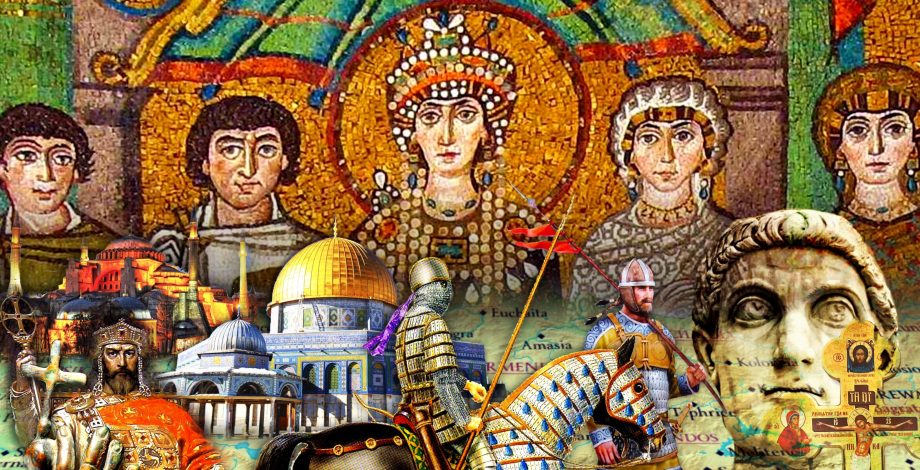We explore the reasons why the Bulgarians never became Romans.
Period: 913-1025
Download: The Eagle and the Frogs
RSS Feed: The History of Byzantium
If you want to send in feedback to the podcast:
– Either comment on this post.
– Or on the facebook page.
– Leave a review on Itunes.
– Follow me on Twitter.

So nation states did not really first appear in the 18th century, as we are all lead to believe. Language and shared history were powerful tool of societal cohesion even before the printing press.
Also, a couple of notes on pronunciation. Nish, and Ochrid. And thanks for another great episode.
“So nation states did not really first appear in the 18th century, as we are all lead to believe. Language and shared history were powerful tool of societal cohesion even before the printing press.”
These ideas peddled by political scientists such as Anderson and Gellner, who had little access to primary sources, have been thoroughly debunked by historians.
I think Robin hit on an extremely insightful perspective in this episode. Consciously or unconsciously he drilled down on the real reason of the fall of Byzantium (and in extension of the Greek and other Balkan nations). Had Eastern Orthodoxy created the cohesive spiritual and cultural community of Latin Christendom, history would have been very different indeed. Cyrillus and Methodius, the saints they are, in reality created the tool of fragmentation of the Orthodox world. Had Byzantines insisted on Greek alphabet, Liturgy, and an ecclesiastical hierarchy headed by the Ecumenical Patriarch , we would have from those early times a community of nations just like the one of the Catholic West. If anything, Greek being the language of New Testament, carried a lot more pedigree as ecclesiastical language than Latin. The Orthodox people, when faced with the double onslaught of the crusades from the West and Islam from the east, were already so desperately “autocephalic” that they didnt stand a chance. It is mind boggling how unintended consequences can rule human affairs…
I’m not so sure about that. Even before the Reformation the Latins were not exactly the most cohesive political-military force. The times that they did unite effectively were fairly rare. I see no reason to believe they would have fared better had they been the first stop on the Turkish onslaught. Also, making the Ecumenical Patriarch into a supreme universal bishop like the Pope could have made the situation even more difficult for Orthodox Christians in Muslim- or Latin-occupied territories, as it would add force to suspicions they were foreign agents. And I wonder if the Bulgars and Serbs would have been more politically united with Byzantium had the latter exercised less, not more, Roman chauvinism.
@Ryan, Latin Christendom often operated cohesively enough to change the course of history. What would you call the multi ethnic crusades? the defense of Vienna? Lepando? and so on? The Popes held immense sway over the elites of catholic europe and was able to mobilize resources the Orthodox East could only dream of.
@Constantine thank you, you really explain it better.
Hi Hermes, could you elaborate on who are the authors who have debunked the idea of the nation as a modern phenomena? Thanks